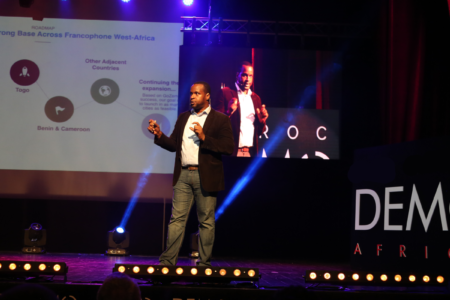Nigeria is estimated to have about 40 million MSMEs, most of whom participate in informal trade.
With just about 50% of the country ‘financially included’ according to the last EFINA study, it’s safe to assume that most MSMEs in Nigeria are excluded from the formal financial system. The reality is that most MSMEs in the country are actually nano-enterprises that employ just two or three people in a largely informal, unstructured fashion, and they largely trade or do business in their personal names.
Still, MSMEs in Nigeria are estimated to account for 50% of Nigeria’s GDP and 88% of its employment. Given these figures, it’s clear that providing inclusive access to finance for the country’s 40 million MSMEs is critical to ensuring a Nigeria that works for many more people — a Nigeria where prosperity is more widely shared.
More specifically, a more inclusive financial system for MSMEs will generate strong positive externalities for the economy at large such as accelerated GDP growth, increased employment, and expanded market demand that will create a reinforcing flywheel of greater employment, greater demand, greater investment, and increased prosperity for Nigerian households and businesses.
There are five challenges, however, that need to be addressed to achieve inclusive access to finance for Nigeria’s MSMEs:
- The lack of an inclusive and pervasive digital identity that works.
Digital identity is the foundational stack in the financial system on which payment, credit, and other financial layers are built. Thus, efforts to create an inclusive financial system for MSMEs are constrained by the reach and pervasiveness of Nigeria’s formal digital identity system.
Here, the government of Nigeria and the National Identity Management Commission (NIMC) should be commended for the significant progress made over the last four years with regards to the Nigerian National Identity Number (NIN). Similarly, the Central Bank of Nigeria should also be commended for its progressive KYC regulation that includes NIN.
As a result, NIN now has a broader reach than the Bank Verification Number (BVN). According to NIMC, there are more than 90 million Nigerians registered with biometric information on the NIN database compared to roughly 50 million Nigerians with BVNs.
If the pace of growth continues, there may be over 100 million Nigerians registered on the NIN database by 2023 — a tremendous milestone. 100 million Nigerians with formal digital identity by 2023 implies that 100 million formal financial accounts (bank or wallet) are possible if players in the financial and digital ecosystem can provide all NIN holders with formal financial accounts. A rallying cry to the ecosystem is therefore: what can we do to make this a reality? The implications for inclusive digital finance are massive.
That said, while the NIN database continues to make strides relative to quantity of Nigerians registered, the quality of information held within it need to be vetted for its benefits to be fully harvested for financial inclusion. Players across the tech ecosystem, for example, have an opportunity to work with the NIMC to build address verification systems that leverage geospatial and geolocation technologies to complement the biometric and phone number information of NIN.
- The scarcity of accessible and affordable merchant collection solutions that can scale and reach millions of MSMEs.
Point of Sales (POS) terminals deployed in Nigeria for merchant collections generally cost about $60 per terminal — a real obstacle for millions of small merchants who can’t justify the cost. Providing alternative solutions that enable millions of MSMEs to get paid conveniently is a significant opportunity.
Industry and ecosystem participants should cooperate to explore innovative and affordable merchant collection solutions and rails like the QR (Quick response) code. This may need some heavy lifting on the issuance and acquiring sides with significant investments in payer & merchant awareness and user-friendly product design, but the business and social returns would be well worth it if it means including at least 20 million of the 40 million MSMEs. And other alternatives such as NFC-enabled tap and pay should also be explored.
And an additional benefit of the QR and other non-card, account-to-account merchant collections & payments solutions is that the payer pays rather than the merchant who would typically be charged 0.5% of the collection (popularly known as the Merchant Service Charge for card payments). For MSMEs, the MSC may be significant relative to their trade margins and may be another disincentive to the use of digital payment collections.
- Low smartphone penetration, expensive internet and costly USSD sessions.
While smartphone penetration in Nigeria is increasing (helped significantly by more affordable pre-owned phones), internet data packages need to be more affordable to get more MSMEs to consistently use connected, digital solutions. Due to the cost of data, many in the lower middle- and lower-income demographic segments in Nigeria switch off their mobile data connection and turn it on at periodic intervals (e.g., to check WhatsApp messages). This suggests that even as smartphones become more affordable, data costs remain an important constraint.
And USSD charges are another important obstacle. With the USSD per session charge of 6.98 naira and a minimum of 10 naira per payment, this implies a minimum USSD payment cost of about 17 naira. While this may be minuscule in dollar terms, it’s quite expensive for nano-enterprises and smaller MSMEs who might engage in frequent micro-transactions. In any case, these charges certainly constitute a disincentive for USSD usage which is unfortunate given that feature phones are the most accessible and affordable for millions of MSMEs and their customers.
There is a potential market failure in USSD pricing here where the social, financial inclusion returns of more affordable pricing outweigh than the private commercial returns that could be appropriated by USSD service providers. If this is the case, a regulatory intervention is warranted to rethink USSD pricing in the larger public interest for millions of MSMEs and small holders farmers in spaces like agriculture. Moreover, if millions of incremental MSMEs and their customers use USSD payments consistently and affordably, the increase in volume might compensate for more accessible prices.
Aside from USSD, the financial services industry should also consider more affordable transfer fees (below 10 naira) for micro-payments to provide incentives for trillions of Peer to Peer (P2P) micro- and nano-payments to be done digitally.
- A dearth of smart AI and ML alternative credit scoring models and overaggressive risk pricing.
Fintech platforms using alternative credit scoring methods to lend to borrowers without traditional financial histories should be commended. However, interest rates on some of these digital lending platforms can be as high as 10% monthly and 200% or more on an annualized basis, suggesting that these digital lenders might be significantly overpricing for risk. While such pricing can make digital lending very profitable for lenders, it creates issues for actual and potential borrowers — particularly the financially excluded who, ordinarily, alternative digital lending platforms should serve.
Smarter AI and machine learning models are needed to more efficiently segment borrowers based on risk profiles so as to minimize the penalization of ‘good’ borrowers who currently have to pay for the risk of the worst borrowers via high interest rates. While some lending platforms are moving in this direction, the fact that median interest rates are still generally high suggests that there remains a not insignificant opportunity to deploy smarter AI and ML models. This will help ensure that credit works for good borrowers and that pricing is accessible for underserved MSMEs.
- A disconnect between the traditional credit bureau system and new fintech platforms.
In Nigeria, credit bureaus today cover the banks mandatorily but digital lending platforms don’t seem to have a regulatory mandate to subscribe to and share the credit histories of borrowers with the centralized credit bureau. While alternative credit profiling as done by each digital lender is a competitive asset based on the intelligence of their models, this implies a lack of a central ecosystem view of the borrowers being served today by new fintech platforms. As the share of lending done by the fintechs in the credit market grows, this disconnect between the traditional credit bureau system and new fintech platforms becomes even more important.
The opportunity has never been greater for real substantial progress in the financial inclusion of MSMEs in Nigeria. The convergence of more pervasive digital identity, innovative technologies in merchant collections, and credit extension based on alternative mofels implies an historic opportunity to include millions of MSMEs in Nigeria in the formal financial system with the associated positive externalities in social impact and inclusive economic growth. With this, we will achieve together a Nigeria that works for many more people. As Nigeria marks its 62nd Independence Day, we must not fail this historic duty.
A version of this article first appeared on LinkedIn.





Share: